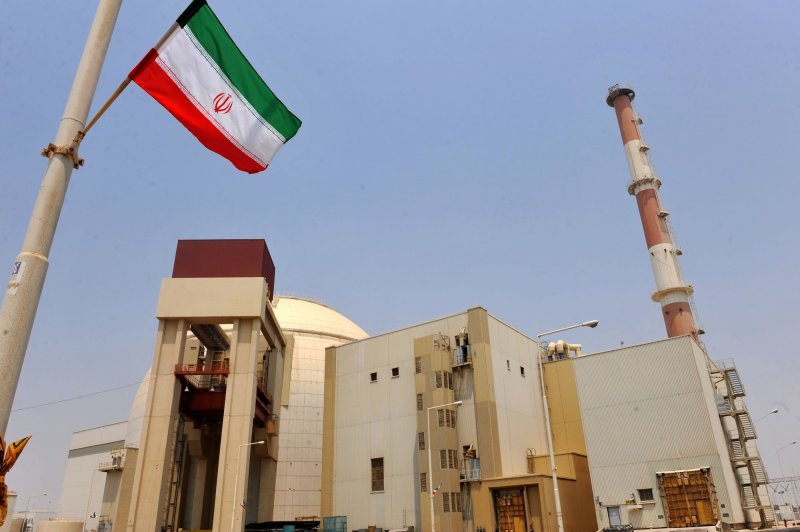A view of Iran's first nuclear power plant is seen after it was opened by Iranian and Russian engineers in Bushehr, Iran, south of Tehran on August 21, 2010. Russia said it will safeguard the plant to prevent material from the site from being used to make nuclear bombs. UPI/Maryam Rahmanianon |
License Photo
ANKARA, Turkey, Dec. 27 (UPI) -- Turkey won't join in any Western intervention in Iran over Tehran's disputed nuclear program, Turkish Foreign Minister Ahmet Davutoglu says.
Davutoglu, speaking last weekend on Turkish, said Ankara would steer clear of any such strikes against Tehran, KUNA, the Kuwait News Agency, reported.
"Turkey will not be part of foreign intervention in Iran," the foreign minister said.
He made the comments less than a month after Turkey demanded reassurances from Iran that it wouldn't target a planned NATO anti-missile defense system radar installation in Turkey should Iran come under attack.
Davutoglu said in the interview that Ankara is concentrating on improving relations with Iran despite the missile shield issue and praised Tehran for opening up to the possibility of strengthening cooperation, KUNA reported.
He said Iranian Foreign Minister Ali Akbar Salehi is eager to upgrade relations with neighboring countries, including Turkey, and called for the peaceful resolution of disagreements over Iran's nuclear program through dialog rather than confrontation.
Davutoglu added that every country has the legitimate right to possess nuclear technology for peaceful purposes.
Iran insists its nuclear activities are meant solely for such purposes but the United States, the European Union and other critics say evidence points to Iran seeking to build a nuclear weapon.
The top Turkish military council said this month it had taken a close look at the country's military preparedness following months of upheaval in the Arab world, including the crackdown on protesters in Syria, a close ally of Iran, the Turkish newspaper Today's Zaman reported.
It said the preparedness review was interpreted by some that Ankara has become wary of Iran and Syria after intervening for Tehran with the West over Iran's nuclear program.
Alarms went off when Hussein Ibrahim, vice president of the Iranian parliamentary national security and foreign policy panel, told the Iranian daily Shargh this month Iran would be justified in targeting the missile defense shield system in Turkey in case of an attack.
A more explicit threat came from senior Iranian Revolutionary Guard figure Gen. Amir Ali Hajizadeh, who warned that "should (Iran) be threatened, we will target NATO's missile defense shield in Turkey and then hit our next targets."
Davutoglu called Salehi personally to demand an explanation and was told the comments don't reflect the official Iranian positions, Today's Zaman reported.
Iran is also unhappy with Turkey over what it sees as interference in the political situation in Iraq, where Tehran wields influence over its Shiite allies, the newspaper said.
The countries are also vying for the ideological leadership of the Arab world in the wake of the upheavals of the Arab Spring, with Iran presenting itself as the Islamic alternative to the secular state of Turkey.
Ali-Akbar Velayati, a senior adviser to Iran's supreme leader Ayatollah Ali Khamenei, said this month Turkey's model of "secular Islam" was a merely another version of
Western liberal democracy and thus unacceptable for countries that are going through an "Islamic awakening," the Financial Times reported.
Despite their political differences, Iran and Turkey share quickly growing and lucrative economic ties, with bilateral trade between the two jumping from $1 billion in 2000 to an estimated $12 billion this year.
Iranian President Mahmoud Ahmadinejad and Turkish President Abdullah Gul said in February the two nations were determined to increase the value of annual trade ties to $30 billion.





